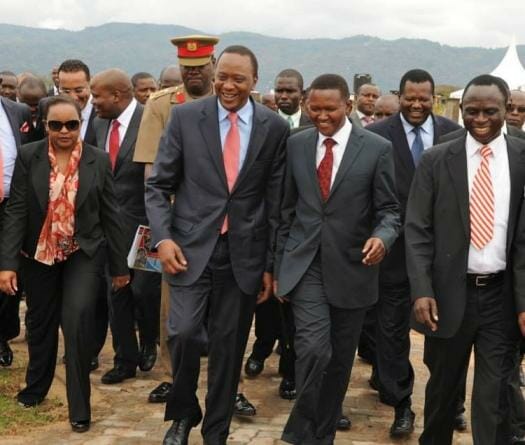Submitted by Boniface Kimwere.
Kenya is a deeply religious country and studies have shown that 84% of all Kenyans identify themselves as Christians. Nowadays, to the dissatisfaction of many, there are numerous churches that have been established to spread the so-called gospel. In my view, religion has not been beneficial to this country.
In March, this year, a secret phone conversation between Jaramogi Oginga and Jomo Kenyatta was declassified and later, released to the public. The phone call disclosed the true feelings of the two leaders on the issue of religion. Surprisingly, the two leaders “seemed to agree that only fools believe in God.” In their admission, it was more important “to keep this view secret to avoid losing popularity.”
As the founding father, Jomo Kenyatta had to unite the country and this difficult task required a special tool. Prior to independence, many whites considered Kenyatta as “the very incarnation of the devil.” Truly, there was a need to change this perspective. In response, Kenyatta presented himself as a staunch Christian who had “read the Bible from cover to cover when he was in detention.” In addition, he managed to convince his supporters that he “underwent a profound religious metamorphosis.” As we have learned from the recordee phone call, this was pure public relations and to a large extent, it was effective.
After the death of Kenyatta, his trusted lieutenant, Daniel Arap Moi took the helms of leadership. The former president has been praised as being a staunch Christian who prayed and read the Bible every day. Sadly, his 24-year term has been described as horrific and pathetic. Many Kenyans were detained and tortured for their varied political views. The regime was also characterized by devious looting that was coordinated from the State House. Indeed, it is not surprising that Moi’s right-hand men such as Nicholas Biwott have also been praised as being religious.
Interestingly, all Kenyan presidents have presented themselves as religious people who are ready to serve God and man. In spite of this, all the four presidents have failed to address key issues that affect Kenyans.
In recent times, the Deputy President, William Ruto, has become a special leader of the Kenyan church. In his article, Dauti Kahura suggested that Ruto has been making “troubling theological statements that cannot stand biblical scrutiny.” The leader has affirmed that he has been sent by God “to give money to the church.” Astonishingly, church leaders have remained mum about his utterances and this has been blamed on the hefty donations. All in all, it is clear that Ruto is on a campaign mode and instead of going for rallies; he has been capitalizing on Sunday assemblies.
Many Kenyans have been fooled by politicians about the importance of religion. Every Sunday, politicians flock to various churches to show their solidarity with Christians and also “invest” in the heavenly kingdom. On this special day, their Twitter handles are transformed into mini-churches where they encourage their followers to believe in God and hope for a better tomorrow.
Arguably, we have been duped. The Christian facade won by leaders is only meant to entice voters to believe that they have been sent by God to assist them. In the last 55 years of self-rule, religion has been used as a tool to influence the masses.
It is high time that we realize that an atheist president is our only hope. Instead of organizing fundraisers to build churches, we should establish new schools and hospitals. An atheist leader would not blame Satan for road carnage; on the contrary, they would demand answers from responsible government officials. An atheist leader would encourage investment in science and technology. Social development, in such circumstances, will address key economic and social issues that we currently face. Indeed, an atheist president is our only hope.





















































